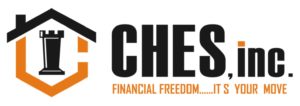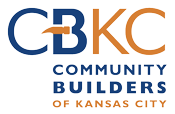Professional Resources For:
 KC Housing Services
KC Housing Services
Kansas City Housing Resources
Visit the following Money Smart Topic for helpful information and links.
Alliance for Economic Inclusion
The Kansas City Alliance for Economic Inclusion (AEI) consists of 650 individuals representing 350 organizations in a broad-based coalition of financial institutions, housing professionals, community-based organizations, businesses, schools and other partners in several markets across the Kansas City metro area. AEI focuses on bringing unbanked and underserved populations into the financial mainstream with an emphasis in creating financial resiliency for low- and moderate-income families in Metropolitan Kansas City. The AEI also works to expand affordable housing opportunities and mortgage credit for low- and moderate-income households.
Kansas City AEI seeks to expand basic retail financial service usage such as savings accounts, affordable remittance products, small-dollar loan programs, targeted financial education programs, alternative delivery channels and other asset-building programs. To further achieve AEI goals of helping the low- and moderate-income community, Kansas City AEI is working to increase banking services for minority and immigrant communities.
Cost or Obligation
The AEI has no cost or obligation to join. You will receive e-mail updates, invitations to AEI meetings and events and the ability to give input on multiple community initiatives that target low –and moderate-income families.
To join AEI complete the form below:
Community Partners
Our experience has taught us that one of the most important and potent factors in the revitalization of a community, particularly a lower-income community, is the community’s ability to develop its own leaders, and to create and own its program of development. LISC has therefore focused its efforts on and through community development organizations that manifest these attributes. That’s why most of the Greater Kansas City LISC portfolio of loans and grants is composed of nonprofit organizations.
Some recipients are community development corporations (CDCs) that are specifically devoted to the redevelopment of a neighborhood. Others may have a somewhat different mission but are still engaged in some aspect of the redevelopment process or in improving the quality of life of residents. Other recipients are what we call “lead agencies:” nonprofit groups dedicated to a single community.
CHES, Inc.
(Credit & Homeownership Empowerment Services, Inc.) is a HUD Approved, 501(c)(3) nonprofit, housing, financial and credit organization.
Certifications & Experience
CHES, Inc. Advisers are NeighborWorks Certified in Foreclosure Prevention, Financial & Credit Management, Education & Counseling, HUD Approved Homebuyer & Homeownership Education (including Pre & Post Purchase). Additionally, each Adviser has a background in real estate, responsible lending, and business & financial management.
Commitment to Excellence
CHES, Inc. is HUD Approved, and an adopter of The National Industry Standards for Homeownership Education & Counseling and The National Loan Modification Scam Alert Campaign. Each CHES, Inc. Adviser is committed to the National Industry Code of Ethics and Conduct for Homeownership Professionals. We are committed to providing excellence and measurable results to those we serve.

Choice Neighborhoods
The Paseo Gateway area, located in Kansas City’s historic Northeast, has been selected by the United States Department of Housing and Urban Development (HUD) as the recipient of a Choice Neighborhoods Initiative implementation grant.
The goal of the Choice Neighborhoods Initiative is to use the transformation of public housing stock—in this case, the Chouteau Courts public housing complex—as a catalyst for improving the quality of life for public housing residents as well as residents of four surrounding neighborhoods:
City of Kansas City, MO
Each year, the city ‘boards-up’ more than 1,500 homes and structures citywide. The city’s Dangerous Buildings division boards-up buildings and homes “open to entry” because they are deemed what’s called an “attractive nuisance” – properties that are likely targets for vagrant or illegal activity. Buildings and homes are board-up candidates for a variety of reasons including fire damage and dilapidation.
Community Builders of Kansas City (CBKC)
CBKC is Kansas City’s largest urban core developer reclaiming neighborhoods by developing quality housing and related services in the neighborhoods it serves. A not-for-profit community development corporation, CBKC works with the neighborhoods it serves to build meaningful relationships, act as community convener, facilitator and resource for services. Since 1991, SCB has secured more than $225 million of investment in urban renewal, earning recognition and respect on the national community development stage.
Community Housing of Wyandotte County
Community Housing of Wyandotte County (CHWC) is a not-for-profit, 501(c)(3), community development corporation dedicated to revitalizing, stabilizing and reinvesting in Kansas City, Kansas neighborhoods. Our goal is provide meaningful programs to the residents of Wyandotte County to help them achieve, preserve and sustain quality neighborhoods and housing.
CHWC exists to serve the families and neighborhoods of Kansas City, Kansas/Wyandotte County. From the “breaking of the ground”, we are planting and nurturing homes for our families. We provide financial counseling, homebuyer assistance and a friendly caring staff willing to help all along the road to homeownership.
Economic Development Corporation KC
Fast-growing entrepreneurial businesses and established organizations know they can attract and retain skilled talent because Kansas City, Missouri, delivers today’s in-demand lifestyles – affordability, diverse housing options and a vast array of cultural attractions to accompany desirable career paths offering choice, challenge and competitive compensation.
Unfettered access to talented employees – as well as to customers, suppliers and markets – is enjoyed by businesses in Kansas City’s centrally located, diverse economy, which features industry sectors with particular strategic advantages –, advanced manufacturing, the arts, design and engineering, health sciences and services, nonprofit management and information technology.
Federal Reserve Bank of Kansas City (FRB)
We promote fair and impartial access to financial products through research, relationship building and resource development.
Research
Promise Zone designation (14), (15)
- https://www.policymap.com/maps
- https://www.hudexchange.info/programs/policy-areas/#community-and-economic-development
Food Desert designation (14)
Flood Zones by geography – (20)
List of banks currently financing mortgage loans by geography (20)
List of non-bank mortgage lenders by geography (20)
State Housing Finance Authorities active programs (Visual depiction) – (24), (18)
- https://www.fdic.gov/consumers/community/mortgagelending/map.html
- https://www.ncsha.org/housing-help
Real Estate permits/development projections by geography (8)
Owner occupancy and rental statistics by geography (3), (4), (5), (10), (14), (20)
- http://www.census.gov/data/data-tools/cbb.html
- http://factfinder.census.gov/faces/nav/jsf/pages/index.xhtml
- https://www.census.gov/programs-surveys/acs/
- https://www.kansascityfed.org/community/cdi/craonesource
- https://www.policymap.com/maps
- http://fdic01.prod.fdic.gov/division/dcp/cra/crawiz/
Federal Housing Program Matrix (24)
HUD
The U.S. Department of Housing and Urban Development’s (HUD’s) Office of Policy Development and Research (PD&R) supports the Department’s efforts to help create cohesive, economically healthy communities
Kansas City, Kansas Unified Government
The Department of Housing and Urban Development (HUD) funds the Housing and Community Development Department using federal Community Development Block Grant (CDBG). CDBG is the Unified Government’s entitlement grant from HUD. According to federal regulation, the use of these funds is limited to support services that will benefit households of “low and moderate” income, or in areas with significant “slum and blight.”
Based on HUD regulations, seventy percent (70%) of the funds expended must benefit low and moderate income persons and respond to at least one of the three following national priorities:
- Benefit low and moderate income persons
- Prevent or eliminate slum and blight
- Urgent need
Kansas City MSA at a Glance
The “Market at a Glance” reports for the counties and metropolitan areas are based on data from BLS (Bureau of Labor Statistics), and American Community Survey data from the U.S. Census Bureau. Some adjustments are made by HUD field economists based on regional information. The data is expected to be released on monthly basis for most of the metropolitan areas and counties.
KC Catalytic Urban Redevelopment Initiative
Greater Kansas City LISC is working in partnership with the City of Kansas City, Missouri (KCMO), Urban Neighborhood Initiative (UNI), Mid-America Regional Council (MARC), and the Kansas City District Council of the Urban Land Institute to redevelop Kansas City’s urban core east of Troost Avenue. This collaborative investment strategy is the result of extensive research and neighborhood engagement by the consulting team of Mosaic Urban Partners, a Washington D.C.- based real estate development and advisory services firm, and Kansas City’s DRAW Architecture + Urban Design.
LISC of Greater Kansas City
The Local Initiatives Support Corporation, known as LISC, is one of the largest organizations supporting projects to revitalize communities and bring greater economic opportunity to residents. These include more affordable housing, better schools, safer streets, growing businesses and programs that improve the financial outlook of people. We provide the capital, strategy and know-how to local partners to get this done. Our work impacts 7 million low-income Americans in both rural areas and urban centers across the country. See our reach as a national nonprofit and see how we work.
Mid America Regional Council (MARC)
As a voluntary association of local governments, MARC convenes partners and coordinates planning efforts on a wide range of issues that are important to communities in the metro, including aging services, early learning, health care, community development, homeland security, emergency services, the regional 9-1-1 system and much more. We work with cities, counties and other entities to identify common objectives and achieve our collective goals. MARC has no taxation or regulatory authority.
MARC serves as both the federally designated Metropolitan Planning Organization (MPO) for the bistate Kansas City region and as the Council of Governments (COG) for the nine counties and 119 cities in the region. MARC is governed by a Board of Directors made up of local elected officials, and is funded by federal, state and private grants, local contributions and earned income. A major portion of our budget is passed through to local governments and other agencies for programs and services.
Neighborhoods NOW
NeighborhoodsNOW is LISC’s approach to comprehensive neighborhood revitalization. Since 2006, we have been investing in the capacity and vitality of six neighborhoods in Kansas City, Missouri and Kansas City, Kansas.
In May of 2016, five of these neighborhoods shared their new 2016-2018 Quality of Life Plans in front of stakeholders from city governments, foundations, neighborhood groups and investors. LISC will support the visions set out in these plans, to help the residents transform their communities.
Research, Maps and Publications
Unified Government of Wyandotte County and Kansas City, Kansas
Urban Neighborhood Initiative
The Urban Neighborhood Initiative–one of the Chamber’s Big 5 ideas–is a nonprofit organization established to revitalize neighborhoods in a target area in Kansas City’s urban core, focusing on health and safety, education and prosperity for generations to come. Formed as a partnership between the United Way of Greater Kansas City and the Greater Kansas City Chamber of Commerce, UNI works with ten neighborhood organizations, residents and through collaborative relationships with business, industry, government and community organizations. Our initiative focus area is from 18th Street to 52nd Street and from Troost to Prospect, in Kansas City, Missouri.
Listing an event on the Money Smart KC website is free.




